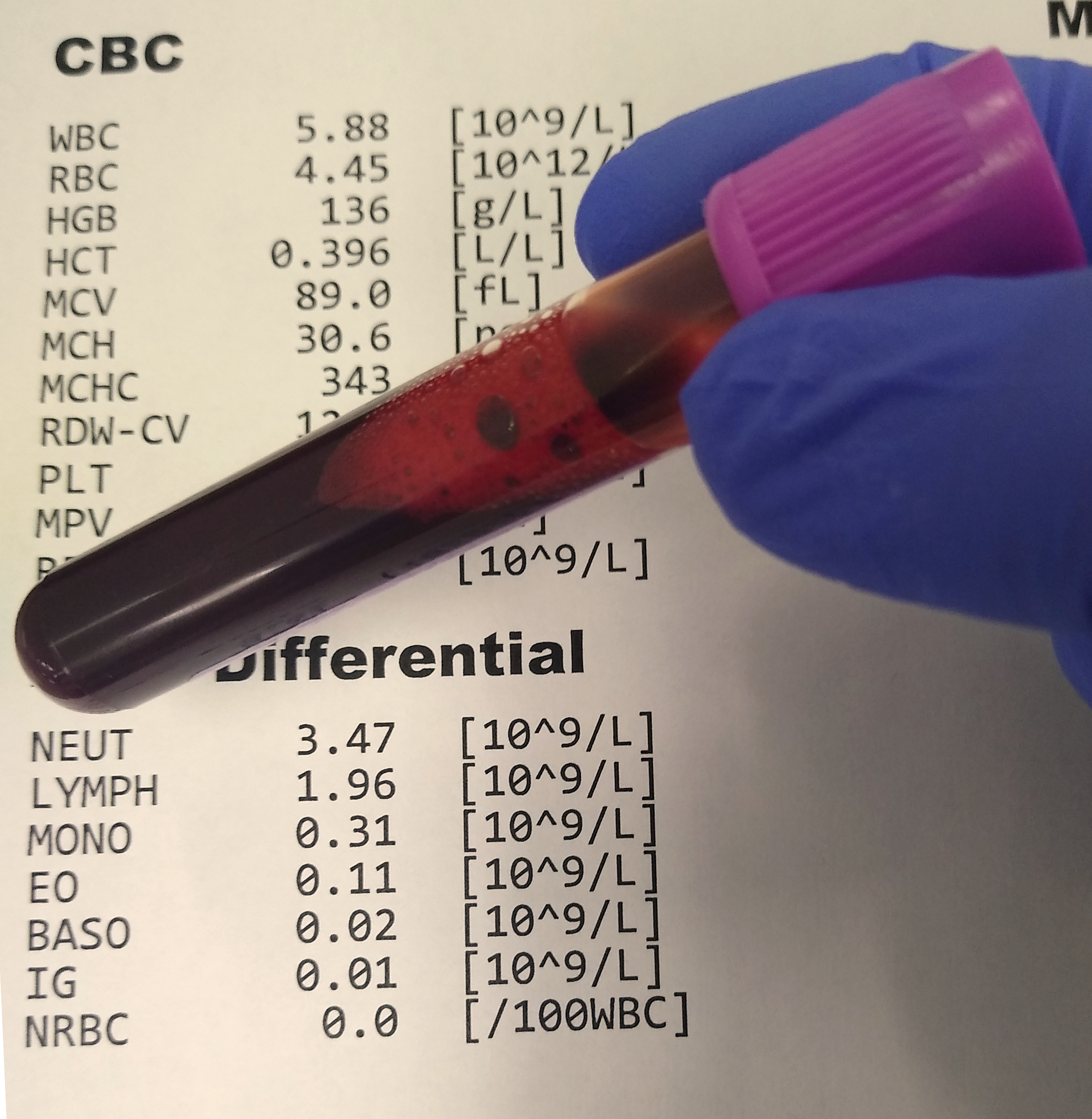Blood Chemistry 101 from a Functional Medicine Perspective
- Introduction to Blood Test Analysis
- Understanding Complete Blood Count (CBC)
- Insight into Complete Metabolic Panel (CMP)
- Studying Vitamin D
- Inflammation Markers - CRP
- Decoding Thyroid Markers
- Iron Markers
- Lipid Panel Assessment
- Micronutrient Markers: Folate, Vitamin B12
- Micronutrient Markers: Zinc, Copper, Magnesium
- Other Key Blood Chemistry Markers
- Implementing Lifestyle Recommendations for Improved Markers
- Pulling It All Together – Your Personal Health Assessment
Understanding Complete Blood Count (CBC)
Understanding Laboratory Ranges in Complete Blood Count (CBC)

Medical laboratory test.
A Complete Blood Count (CBC) is a blood test that provides information about the cells in your blood, including red blood cells (RBCs), white blood cells (WBCs), and platelets. Each of these components has a specific range that is considered normal. These ranges can vary slightly depending on the laboratory that analyzes the blood sample.
Red Blood Cells (RBCs)
RBCs, also known as erythrocytes, carry oxygen from the lungs to the rest of the body. The normal range for RBC count is typically:
- Men: 4.7 to 6.1 million cells per microliter (cells/mcL)
- Women: 4.2 to 5.4 million cells/mcL
A count significantly higher or lower than these ranges could indicate a variety of conditions, including anemia, dehydration, or heart disease.
White Blood Cells (WBCs)
WBCs, or leukocytes, are part of the body's immune system and help fight infections. The normal range for WBC count is usually between 4,500 and 11,000 cells/mcL. A high WBC count may indicate an infection, while a low count could suggest a weakened immune system.
Platelets
Platelets, or thrombocytes, are small cell fragments that play a crucial role in blood clotting. The normal range for platelets is typically between 150,000 and 450,000 cells/mcL. A count outside this range could indicate a bleeding disorder or a thrombotic condition.
Hemoglobin
Hemoglobin is a protein in RBCs that carries oxygen. The normal range for hemoglobin is:
- Men: 13.5 to 17.5 grams per deciliter (g/dL)
- Women: 12.0 to 15.5 g/dL
Low hemoglobin levels often indicate anemia, while high levels could suggest polycythemia vera or lung disease.
Hematocrit
Hematocrit measures the proportion of blood volume that is occupied by RBCs. The normal range for hematocrit is:
- Men: 38.8% to 50.0%
- Women: 34.9% to 44.5%
A low hematocrit could indicate anemia, while a high hematocrit could suggest dehydration or polycythemia vera.
Mean Corpuscular Volume (MCV)
MCV measures the average size of your RBCs. The normal range for MCV is typically between 80 and 96 femtoliters. A low MCV could indicate iron-deficiency anemia, while a high MCV could suggest vitamin B12 or folate deficiency anemia.
Understanding these laboratory ranges is crucial for interpreting your CBC results. However, it's important to remember that these ranges are just a guide. Many factors, such as age, sex, and overall health, can affect these ranges. Always consult with a healthcare professional for a comprehensive understanding of your CBC results.